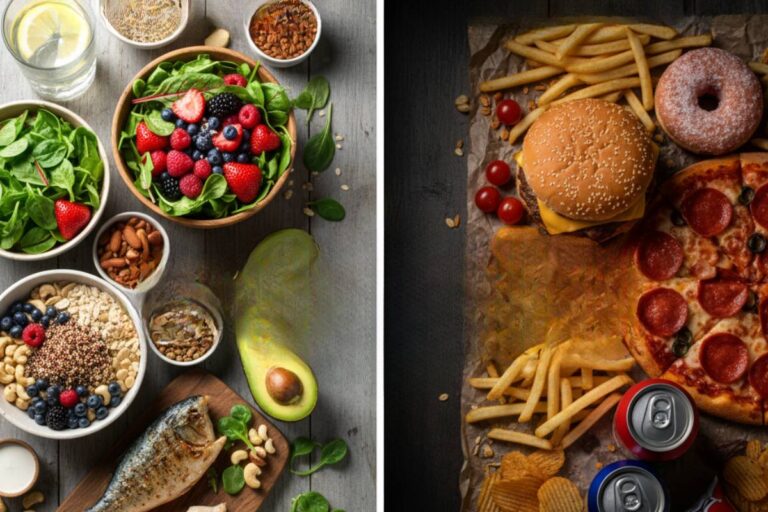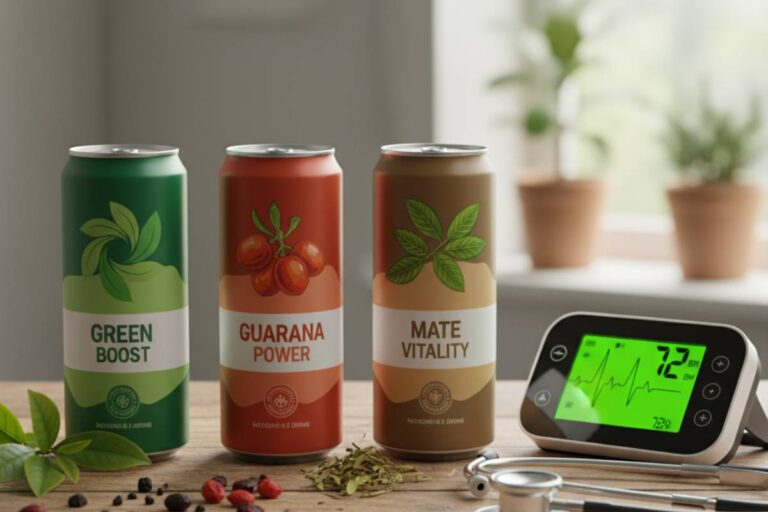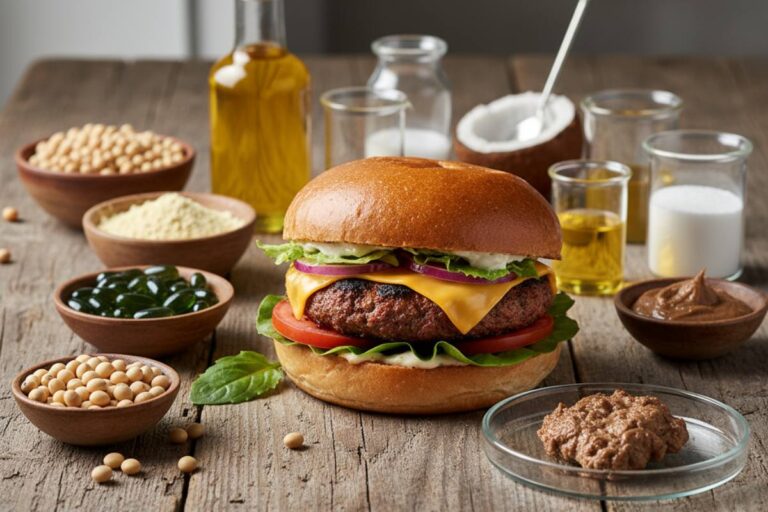You’ve seen it all over the place. Gluten-free signs all over the grocery store, celebrities swearing by wheat-free diets, and friends saying they’ve “never felt better” since they stopped eating gluten. But here’s the thing: that gluten-free diet you thought would help you lose weight? It could be doing the opposite.
It doesn’t make sense, does it? Well, get ready, because the science behind gluten-free weight gain is more complicated than most people want to admit.
The Big Gluten-Free Mistake
Let’s get real for a minute. Alexandra Anca, a dietitian in Toronto, says it plainly: “The idea that avoiding gluten will automatically help you lose weight is a big mistake.” She has actually seen the exact opposite in her practice.
Not only is this one expert’s opinion. Studies have shown time and time again that people who stop eating gluten often gain weight instead of losing it. A study of 369 adults with celiac disease found that 27% of those who were overweight at first gained even more weight after almost three years on a gluten-free diet.
But hold on, there’s more. Another study of 371 adults with celiac disease found that 82% of overweight patients gained more weight after two years on a gluten-free diet. The numbers for kids are just as shocking: the percentage of overweight kids with celiac disease almost doubled from 11% to 21% after they stuck to a gluten-free diet for at least a year.
Why gluten-free foods have more calories
This is where things get really interesting. Those gluten-free options that look so innocent on your pantry shelf? They often look like healthy foods but are actually high in calories.
For instance, bread. A piece of regular whole wheat bread has about 71 calories and 0.9 grams of fat. Look at it next to its gluten-free version: Each slice has 77 calories and 2.3 grams of fat. It may not sound like much, but it adds up faster than you think.
But the problem goes beyond just bread. Rice, tapioca, potato, and sorghum are some of the most common gluten-free flours. They have a higher glycemic index than wheat. They have more carbs and calories in each serving.
And here’s the kicker: gluten-free baking needs more sugar and fat to make up for the texture and taste that gluten naturally gives. It’s like cooking chemistry, and sadly, the answer is usually more calories.
The Restaurant Truth Check
Eating out? The gap in calories gets even bigger. The “GlutenWise” individual pizzas from Boston Pizza have about 720 calories, while the regular-crust versions have about 500 calories. That’s 44% more calories, as well as more fat, sodium, and sugar.
This happens over and over again with many food manufacturers and restaurant chains. When gluten is removed, other ingredients are added to keep the taste and texture. What are those extra ingredients? Most of the time, sugar, fat, and calories.
The Health Halo Effect
Psychologists talk about the “health halo effect,” which is making waistlines everywhere bigger. People think that something is healthier if it says “gluten-free” on the label, even if it isn’t.
This mental shortcut makes people do something dangerous: eat more food. If it’s “healthy,” why not have more, right? No. Studies show that people eat more of foods they think are healthy, which can actually make them gain weight instead of stopping it.
Recent research shows how common this misunderstanding has become. A survey from 2013 found that 65% of American adults think gluten-free foods are healthier by nature, and 27% choose gluten-free products specifically to lose weight. Spoiler alert: science doesn’t back up either of these ideas.
What gluten-free products really have inside
Let’s take a look behind the curtain of marketing, shall we? Plant Foods for Human Nutrition published a full study that looked at gluten-free foods and their regular counterparts. The results were… let’s just say they weren’t good.
Gluten-free foods usually have:
- More sugar
- More calories
- Less protein
- Less fiber
- Fewer important nutrients
Sachin Rustgi from Clemson University, who wrote the study, said that “many perceived benefits of gluten-free products – such as weight control and diabetes management – are exaggerated.”
But why do companies add sugar and fat to these things? It doesn’t mean it’s necessary. Food scientists need other ways to make textures and flavors that people will like because gluten doesn’t bind things together. Sadly, those other options usually cost more calories.
The Fiber and Protein Issue
People don’t know this, but grains that contain gluten, like wheat, rye, and barley, are great sources of arabinoxylan, a fiber that is very good for your health in many ways. By cutting out gluten, you are also cutting out this helpful fiber.
This has a double whammy effect. First, you’re eating foods that have extra sugars and fats in them. Second, you’re missing out on fiber, which helps control blood sugar, keeps your gut bacteria healthy, and makes you feel full longer.
The protein situation isn’t much better either. A lot of gluten-free foods have a lot less protein than foods that are made with wheat. And here’s the really frustrating part: sometimes manufacturers add fiber supplements to make up for it, but these can actually make it harder for the body to break down protein.
The Link to Celiac
Now, let’s be very clear about something important. The Canadian Celiac Association says that about 1 in 133 people have celiac disease, and for them, a gluten-free diet is not an option. It’s necessary for health.
Here’s the strange thing: even people who need gluten-free diets often gain weight when they start them. Why? People with celiac disease start to absorb nutrients better when their damaged intestines heal. This better absorption includes calories, which can make you gain weight if you keep eating the same amount.
Researchers have seen this pattern over and over again. “People with celiac disease will often gain weight as their intestines heal and they can get more nutrients from their food,” said one study.
The Long-Term Effect on Weight
Meta-analyses of long-term gluten-free diets show a worrying trend. Long-term adherence to gluten-free dietary patterns has been consistently linked to elevated body mass index (BMI) and nutritional deficiencies.
A systematic review and meta-analysis of 27 studies concluded that gluten-free diets exerted “no significant effect” on weight loss. In fact, the effect on BMI and body fat was “significantly higher” in interventions lasting more than 48 weeks.
What does this mean in real life? If you stay on a gluten-free diet for too long, you are more likely to gain weight than lose it.
The Nutritional Deficiency Trap
Gluten-free diets that aren’t needed can cause nutritional gaps in addition to weight gain. Packaged gluten-free foods often don’t have enough fiber and don’t have added vitamins and minerals.
People who don’t eat gluten often have trouble getting enough of:
- Folic acid
- Dietary fiber
- Calcium
- Vitamins B
- Iron
Alexandra Anca says that people who eat gluten-free “need to get dietary fiber, folic acid, calcium, and B vitamins from other foods.” “That’s a lot of work to do on nutrition for a diet that’s supposed to be “healthier.”
When it makes sense to be gluten-free
Let’s be honest. It’s not bad to eat gluten-free foods; they just don’t work for most people as magic weight-loss tools.
People with celiac disease need these diets for medical reasons.
- Wheat allergies
- Non-celiac gluten sensitivity
Avoiding gluten can greatly improve the quality of life and stop serious health problems from happening in these cases. That’s medical care, not a choice of lifestyle.
The Problem with Processing
You might be surprised to learn that a lot of foods that don’t have gluten are very good for you. Fresh fruits, vegetables, lean meats, fish, nuts, and seeds are all naturally gluten-free and full of nutrients.
The problems start when we depend too much on gluten-free processed foods. To get a good taste and texture without gluten, these products often go through a lot of processing. More processing usually means more sugars, fats, preservatives, and additives.
According to Harvard’s School of Public Health, gluten-free foods usually have less fiber and more sugar and fat than regular foods. They’ve also seen “a trend toward weight gain and obesity among those who follow gluten-free diets.
The Cost Factor
It’s bad enough that you gain weight, but gluten-free products also cost a lot more than regular ones. Recent studies show that American shoppers “often pay more for gluten-free products” but get “less protein and more sugar and calories.”
It’s like paying a lot of money for bad food. That’s not really the health boost that most people want.
Smart Ways to Eat Well
So what should someone who cares about their health do? Not all gluten-free foods are bad for you; the key is to make better choices in general.
When it comes to eating healthy, food experts always say to “get back to the basics.” This means paying attention to:
- Foods that are whole and not too processed
- Fruits and vegetables that are fresh
- Lean proteins
- Fats that are good for you
- Enough fiber from a variety of sources
No proof that cutting back on gluten will help your health or waistline if you don’t have celiac disease or gluten sensitivity. Nutrition experts at the Cleveland Clinic say it clearly: “There is absolutely no evidence that simply getting rid of gluten will result in weight loss.”
The Bottom Line on Losing Weight Without Gluten
The gluten-free industry doesn’t want you to know this, but it’s true: their products are often less nutritious and higher in calories than regular ones.
The research is clear and consistent. A lot of studies show that gluten-free foods usually have more calories, sugar, and fat and less protein and fiber than regular foods.
For people who don’t have a medical reason to avoid gluten, going gluten-free often makes them gain weight instead of lose it. The “health halo effect” makes people eat more of foods they think are healthy, but these foods are often higher in calories than the foods they replace.
The Yale School of Medicine says it best: “A common misconception is that a gluten-free diet is healthier in and of itself, even for people who don’t have medical reasons for following it.”
If you really want to lose weight, cutting out gluten isn’t the answer. The answer is to eat a balanced diet and exercise regularly to create a calorie deficit that lasts. Eat whole foods, watch how much you eat, and don’t buy gluten-free processed foods unless you really need them for medical reasons. This will save you money.
The best diet is one that you can stick to for a long time and still get all the nutrients you need. Most people don’t need to stop eating gluten; they just need to stop believing the wrong things about what makes food healthy.
The gluten-free diet trend has led to the creation of a billion-dollar industry that promises better health and weight loss. But the science is clear: for most people, going gluten-free is more likely to make your waistline bigger than smaller.
















